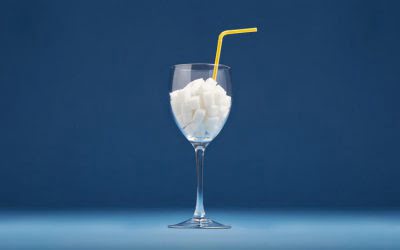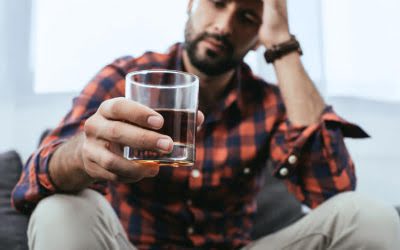Liver fat may have been reduced reducing the risk of liver cirrhosis and other issues. By day seven, your liver should be functioning more efficiently and you should have increased energy. Alcohol-related skin conditions like rosacea and psoriasis may start to improve due to increased hydration and you can expect to sleep better and have fewer headaches. Quitting alcohol is more than just stopping a habit; it’s a profound journey of physical healing and self-discovery. While the initial stages can be tough, the rewards – improved health, mental clarity, emotional stability, and authentic connection – are immeasurable. There are other people who feel physically sick and others who have mild physical symptoms but struggle mightily with psychological effects like cravings and thinking about drinking constantly.
Creating a supportive environment

Engaging in alcohol therapy can help you work through these feelings with expert guidance. Before abstaining, the study participants were drinking around 13 drinks a day over 12 months, Vice reported. After a month, those who refrained from drinking experienced a range of positive health benefits not seen in a similar group of people who continued to drink. Over time, this can turn into a detrimental cycle of drinking, feeling anxious, and then drinking more to reinstate a feeling of calm. It’s no wonder why alcohol consumption can lead alcoholism symptoms to reduced mood, increased anxiety, and even depression.
Benefits of Quitting Alcohol: Improved Sleep Quality

It has articles on every topic imaginable related to quitting drinking and is continuously updated. But with determination and help, whether through recovery programs such as Alcoholics Anonymous (AA) or other sobriety support systems, you can beat alcoholism and live a life you love. You may have problems with digestion for up to a year after quitting drinking, but this will improve over time. Studies have shown that after three-weeks of abstinence from alcohol, patients saw a complete recovery of gut barrier function in subjects who suffered from alcohol addiction and leaky gut.
- For many people, this is the beginning of improved quality of life.
- So, while we can metabolize around a unit of alcohol an hour, if you drink a lot, everyday, your body has to rid your system of those toxins.
- And if you do drink one day, remember that a 96% sober month is still pretty amazing.
- Alcohol use can alter your gut microbiome, which is responsible for key bodily functions like digestion.
The First Week: Initial Signs of Healing

The most dangerous symptoms that can develop will do so as symptoms peak. Seizures can occur, and an uncommon but dangerous condition called delirium tremens can happen at this point in withdrawal. Delirium tremens has a fatality rate of 37% if untreated and is what happens when you stop drinking alcohol considered a medical emergency.
- Drinking too much weakens your immune system, making it harder for your body to fight off illnesses.
- Medical detox ensures you will be as safe as possible by providing 24/7 monitoring that helps recognize and treat complications effectively and as rapidly as possible.
- When you don’t drink enough water – and compound the issue by drinking a diuretic – your brain doesn’t function optimally.
- Alcohol’s two main breakdown products are acetaldehyde and ethanoic acid.
The Role of Professional Treatment in Recovery
Alcoholic drinks contain a lot of calories, and heavy drinking can lead to an excessive caloric intake. Furthermore, chronic alcohol use has been known to weaken the immune system, making you susceptible to illnesses. A robust immune system is critical for fighting infections and staying healthy. After three months without drinking, your immune system strengthens as the impact of alcohol on white blood cells diminishes.
Alcohol irritates the gut and disrupts normal stomach functioning, causing bloating, indigestion, heartburn and diarrhoea. If you have only mild damage in the liver, seven days may be enough to reduce liver fat and heal mild scarring and tissue damage. Even though alcohol can make you feel sleepy at first, it disrupts your sleep cycle. By the end of an alcohol-free week, you may notice you are more energetic in the mornings as a result of getting better quality sleep. Fortunately, reducing your alcohol use can help improve your sleep over time, although you might experience more sleep disturbances for some time after you quit. It can make your family and friends feel as if you are choosing an addiction over them and cause you to act in ways that are destructive to relationships.
Schreibe einen Kommentar